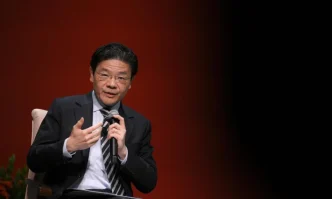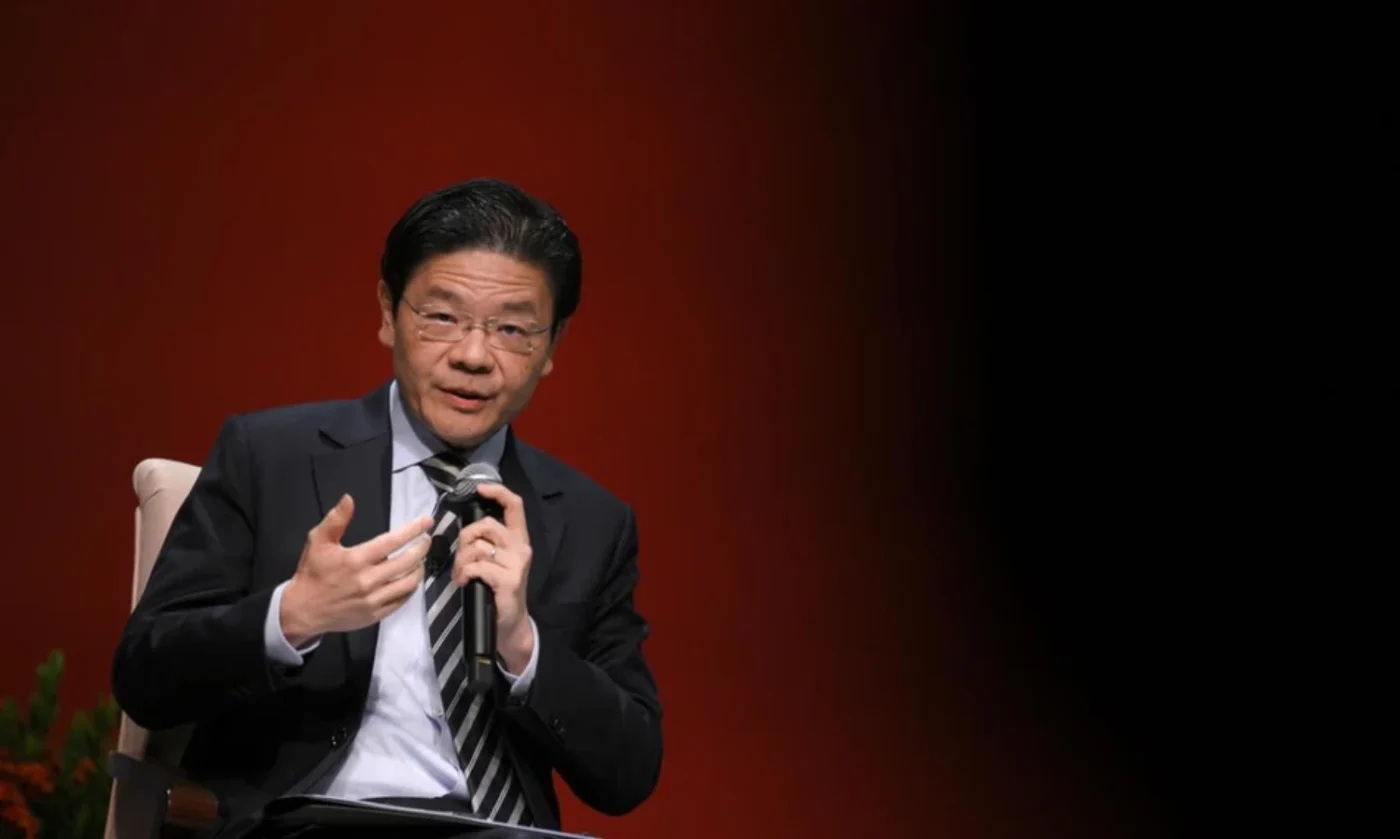Singapore’s political landscape entered a new chapter on May 21, 2025, as Prime Minister Lawrence Wong unveiled his first post-election Cabinet, signaling a blend of continuity and renewal. Following a strong mandate with 65.57 percent of the nationwide vote share in the May 3 general election, PM Wong introduced a team designed to navigate the city-state through a period of global uncertainty. With a core group of senior leaders, the appointment of younger ministers, and strategic portfolio shifts, the reshuffle reflects a deliberate effort to maintain stability in economic and foreign policy while fostering the next generation of leadership.
A Core Team for Uncertain Times
At a press conference at the National Press Centre, PM Wong emphasized the need for a robust team to address the challenges of a changing global environment. “With your strong support, I have done my utmost to assemble the strongest team I could for Singapore” he said. Central to this vision is a quartet of senior leaders, including Deputy Prime Minister Gan Kim Yong, who remains PM Wong’s second-in-command, and three coordinating ministers—K. Shanmugam, Chan Chun Sing, and Ong Ye Kung. This configuration, PM Wong noted, provides a solid foundation of experience to guide newer ministers and advise on critical national issues.
Unlike his predecessors, who each appointed two deputy prime ministers after their first elections, PM Wong has opted for a single DPM. “For now, I have a solid team behind me. Gan Kim Yong is my deputy prime minister, and I’ve appointed three coordinating ministers. So that’s four senior leaders in my Cabinet” he explained. In the absence of both PM Wong and DPM Gan, one of the coordinating ministers will step in as Acting Prime Minister, a structure Wong described as a “good configuration” with room for future adjustments.
The coordinating ministers will oversee key areas: Shanmugam takes on national security while retaining his role as Minister for Home Affairs; Chan manages a newly created public services portfolio alongside his new role as Minister for Defence; and Ong focuses on social policies while continuing as Minister for Health. These assignments underscore a focus on security, public integration, and social welfare as pillars of the administration’s agenda.
Continuity in Economic and Foreign Policy
In a world marked by rising trade barriers and economic uncertainty, PM Wong has prioritized stability in Singapore’s economic and foreign policy portfolios. “We are operating in a changed world with sharper competition and greater uncertainty, and we need experienced hands at the helm” he said. Most ministers overseeing economic agendas, including Wong himself at the Finance Ministry, will remain in their roles. DPM Gan continues as Minister for Trade and Industry, supported by Grace Fu, who retains her trade relations and sustainability portfolios. Dr. Tan See Leng, previously Second Minister at Trade and Industry, takes on a new role as Minister-in-charge of Energy and Science & Technology, reflecting the government’s emphasis on innovation and clean energy as growth drivers.
Foreign Affairs Minister Vivian Balakrishnan also stays in position, ensuring consistency in Singapore’s international relations. “It’s with this in mind that I’ve kept most of the experienced ministers in the core areas like the Ministry of Foreign Affairs and the economic ministries” PM Wong noted. This approach aims to secure Singapore’s global standing amid geopolitical shifts, with a clear intent to advance national interests overseas.
Renewal Through Younger Leadership
While continuity defines the economic and foreign policy spheres, the reshuffle introduces significant changes in social and security portfolios, with a clear focus on leadership renewal. Two new MPs and former public servants, David Neo and Jeffrey Siow, have been appointed as acting ministers, marking their rapid ascent into significant roles. Neo, a former chief of army, becomes Acting Minister for Culture, Community and Youth, while Siow takes on the Transport Ministry as acting minister, alongside a senior role in Finance. Their appointments signal trust in fresh perspectives to address domestic challenges.
Additionally, nine new political office-holders have been named, including Dinesh Vasu Dash, Jasmin Lau, and Goh Pei Ming, among others, many of whom are newly elected MPs. Four existing office-holders—Associate Professor Faishal Ibrahim, Murali Pillai, Sun Xueling, and Baey Yam Keng—have been promoted, further strengthening the pipeline of future leaders. “I’m doing this to give younger leaders more experience and exposure across different areas of government so as to prepare them for greater responsibilities in the future” PM Wong said.
The reshuffle also sees a slight increase in the number of political office-holders, from 37 to 40, which PM Wong described as a transitional measure. He anticipates further adjustments in the coming years as junior ministers gain experience and step into larger roles.
Notable Departures and Transitions
The reshuffle comes with the retirement of six Cabinet members, including prominent figures like Heng Swee Keat, Teo Chee Hean, and Ng Eng Hen, marking the end of an era for some of Singapore’s long-serving leaders. PM Wong paid tribute to their contributions, particularly highlighting Heng Chee How and Amy Khor for their understated yet impactful service across various ministries and as mayors. “They never sought credit or fanfare… A big thank you to Chee How and Amy” he said.
Another notable transition involves Edwin Tong, who assumes the role of Minister for Law from Shanmugam while also becoming Second Minister for Home Affairs. PM Wong framed this as an opportunity for Tong to gain experience and “prepare him to assume greater responsibilities in due course.” Similarly, portfolio shifts such as Desmond Lee moving from National Development to Education and Chee Hong Tat taking over National Development reflect a strategic reshuffling to align expertise with emerging priorities.
One temporary deviation from tradition is the absence of the National Trades Union Congress (NTUC) secretary-general in the Cabinet. Newly elected MP Ng Chee Meng, who previously served as a minister, requested to focus on his NTUC role and constituency work in Jalan Kayu. “But to be clear, this is a temporary arrangement, and I look forward to having the labour chief being part of the Cabinet before too long” PM Wong clarified.
Strategic Priorities and Challenges Ahead
The new Cabinet’s immediate priorities, as outlined by PM Wong, center on securing Singapore’s position in a volatile global environment and steering the nation through economic uncertainties. The retention of experienced ministers in economic and foreign affairs roles underscores a commitment to stability, while the emphasis on science, technology, and clean energy through Tan See Leng’s new portfolio highlights forward-thinking policies to drive growth.
On the domestic front, the creation of a public services portfolio under Chan Chun Sing aims to integrate amenities and facilities, particularly in new housing estates, to enhance accessibility for citizens. Meanwhile, Ong Ye Kung’s focus on social policies, alongside ongoing health initiatives like Healthier SG and Age Well SG, suggests a continued push to address aging and wellness challenges in Singapore’s society.
Security remains a critical focus, with Shanmugam’s dual role in national security and home affairs ensuring a steady hand in safeguarding the nation. The inclusion of younger leaders in social and cultural portfolios also indicates an intent to connect with diverse communities and address evolving societal needs, from education to family development.
Analysts Weigh In on Leadership Renewal
Political analysts view the reshuffle as a balancing act between maintaining stability and fostering renewal, a hallmark of Singapore’s governance model. The limited changes in economic portfolios reflect caution amid global uncertainties, while the influx of new faces suggests confidence in the People’s Action Party’s (PAP) succession planning. Senior Minister Lee Hsien Loong, in a Facebook post, expressed optimism about the new lineup, noting “a good balance of experience and fresh perspectives, and progress in leadership renewal.”
However, some observers point to potential challenges in integrating newer ministers into high-stakes roles during a period of global turbulence. The single DPM structure, while streamlined, may also raise questions about workload distribution among senior leaders if crises emerge. Still, PM Wong’s openness to future adjustments provides flexibility to address such concerns as the administration evolves.
Looking Forward
As Singapore’s new Cabinet takes shape, effective from May 23, 2025, the blend of seasoned expertise and emerging talent offers a glimpse into the nation’s future direction. With global challenges looming—from economic competition to geopolitical tensions—the administration’s ability to adapt while maintaining its hallmark stability will be closely watched. For now, PM Wong’s team stands poised to build on past successes, with an eye toward innovation and inclusivity in an increasingly complex world.
















